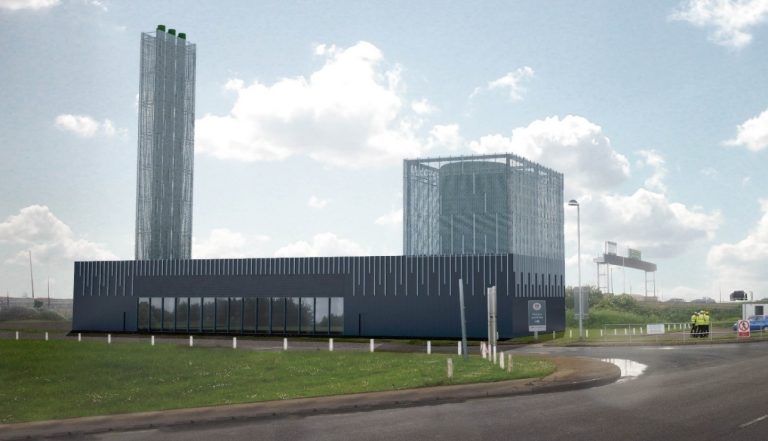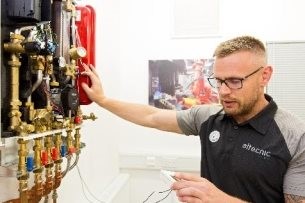Heat networks that will use Energy from Waste to be developed in London and East Devon with support of funding awarded through the Government’s Heat Networks Investment Project (HNIP). Over £250 million of funding has been awarded to heat network schemes under the Heat Networks Investment Project (HNIP) since it opened its doors to applicants in 2018. The total Capex of schemes offered HNIP funding exceeds £826 million highlighting the scale of the opportunity for investment in the sector. Ken Hunnisett, Triple Point Heat Networks Investment Management, said: “Heat networks are at their brilliant best when using heat from natural resources or here, with these two exciting schemes in Southwark and Cranbrook, when recovering heat which would otherwise be wasted. Benefitting from a combined award of loan and grant funding exceeding £26m, the scale and ambition of the two projects reflect the growth in the UK’s heat network market while also being exemplars of how green infrastructure can be a driver of tangible local economic growth and a compelling means of levelling up the very different communities of a bustling metropolitan borough and a Devon new town. The HNIP has now closed for applications, but we’ll continue to showcase its many success stories. Over the past three years we have seen some incredible projects come forward for funding we look forward to seeing them develop and expand further.” Business and Energy Minister, Lord Callanan, said: “Heat networks powered by energy from waste sites are an important and low-cost part of the UK’s low carbon heating mix, helping to reduce our reliance on gas and oil for heating. “Transitioning heat networks away from gas can help protect consumers from the volatility of fossil fuel prices and this funding will accelerate the development of technologies that help shield households and businesses.” Energy from Waste plants tackle two key challenges as we move towards a more sustainable society: waste and climate change. Not only do they deliver significant base-load low carbon electricity, but they also process waste that would otherwise end up in landfill. The generation of electricity results in high temperature waste heat which can be captured and used to heat our homes and buildings. Finally, the ash produced as a by-product can be used as aggregate in the construction sector. Overview of projects awarded funding Veolia (Funding Award: £16 million) Veolia has been awarded over £16 million to bring an EfW sourced, low-carbon, heat network to a new area of Southwark, supplying heating and hot water to several existing estates and schools that currently depend on gas boilers and supporting the future growth to a new regeneration area aimed to accommodate 20,000 new homes over the next 15 years. The project is subject to further agreement with SELCHP Ltd, the existing EfW energy centre, and will involve some modifications to improve efficiencies and enable further heat extraction and the construction of a new 6km district heat network. The proposed network will provide immediate and long-term carbon reductions to these developments compared to the proposed counterfactuals, while providing good value to residents and businesses. The network is expected to deliver on average 11,100 tonnes of carbon savings each year. Commenting on the latest carbon reduction energy project, Gavin Graveson, Veolia Senior Executive Vice-President, Northern Europe Zone, said: “Decarbonisation of the domestic heat supply is a key area where the UK can advance progress towards the net-zero carbon goal by increasing the adoption of heat networks. The proposed expansion of the existing Energy Recovery Facility (ERF) derived heat network, to a further eleven estates across the London Borough of Southwark, has now been made possible with support from BEIS and Triple Point Heat Networks. This significant new heat network project will deliver low carbon affordable heat to over 3,000 Southwark homes, local schools, and enable commercially viable connections to future private and commercial customers.” Cllr Helen Dennis, Cabinet Member for the Climate Emergency and Sustainable Development, said: “Seventy-nine per cent of emissions in Southwark are from buildings, so to achieve our ambition of being net-zero by 2030, it’s crucial that we take steps to green all of our homes and buildings and support the shift away from gas. We are delighted to see this significant project move forward to do just that on eleven of our estates and at five of our schools in the Old Kent Road and North Peckham area. This will provide a sustainable and affordable heating and hot water solution, which will keep our students and residents warm, whilst also making a massive reduction in the borough’s carbon emissions.” Cranbrook (Funding Award: £10.7 million) Cranbrook is a new town in East Devon located near to the city of Exeter. Development began in 2011 and today around 2,800 homes have been built. Cranbrook is in close proximity to employment developments including the low carbon Skypark business park with a single heat network serving both developments. Over the next 20 years, Skypark is predicted to create up to 6,500 new jobs with a significant positive impact on the local economy. The development takes an integrated approach to sustainability which includes tackling embodied carbon, reduction in building level energy demands, the use of renewable technologies and ensuring the site is future proofed. A second network immediately to the west is being rolled out to serve Exeter Science Park and further housing development. The £10.7 million award by HNIP will allow both of these networks to be connected to a forthcoming Energy from Waste Plant. Cranbrook/Skypark will supply heat to 3,500 homes and 1.4m sq ft commercial space and Monkerton/Tithebarn which will connect 4,600 homes and 800k sq ft commercial space. The interconnection of these networks will enable the bulk supply of heat to both networks including all necessary resilience and back up. The project will also support the planned expansion of Cranbrook to circa 8,000 houses through enabling the delivery of a Future Homes Standard compliant energy solution. Cllr Geoff Jung, East Devon District Council’s Portfolio Holder for Coast, Countryside and Environment, said: “We very much







